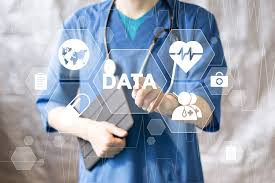Big data is revolutionizing the healthcare industry, offering unprecedented opportunities to improve patient care, streamline operations, and advance medical research. The sheer volume, velocity, and variety of data generated in healthcare settings – from patient records and medical imaging to wearable devices and genomic sequencing – are creating a landscape ripe for innovation and transformation.
One of the most significant applications of big data in healthcare is in predictive analytics. By analyzing vast amounts of patient data, healthcare providers can identify individuals at high risk for certain conditions, allowing for early intervention and preventive care. For example:
- Hospital readmission prediction: By analyzing factors such as medical history, social determinants of health, and post-discharge care plans, hospitals can identify patients at high risk of readmission and implement targeted interventions.
- Disease outbreak detection: Public health agencies can use big data analytics to monitor social media, search engine queries, and electronic health records to detect early signs of disease outbreaks, enabling faster response times.
- Chronic disease management: Predictive models can help identify patients at risk of developing chronic conditions like diabetes or heart disease, allowing for proactive lifestyle interventions and monitoring.
Electronic Health Records (EHRs) have become a crucial source of big data in healthcare. These digital records provide a comprehensive view of a patient’s medical history, allowing for more informed decision-making by healthcare professionals. The aggregation of EHR data across populations can also reveal patterns and trends that may not be apparent at the individual level. Some key benefits of EHRs in the context of big data include:
- Improved care coordination: EHRs facilitate the sharing of patient information across different healthcare providers, reducing duplication of tests and improving continuity of care.
- Clinical decision support: By integrating with big data analytics platforms, EHRs can provide real-time alerts and recommendations to clinicians based on patient-specific data and evidence-based guidelines.
- Population health management: Analyzing EHR data at scale can help identify trends in disease prevalence, treatment efficacy, and healthcare resource utilization, informing public health strategies and policy decisions.
In medical research, big data is accelerating the discovery of new treatments and interventions. By analyzing large datasets from clinical trials, genetic studies, and real-world evidence, researchers can identify promising drug candidates and potential side effects more quickly and efficiently than ever before. Some specific applications include:
- Drug discovery: High-throughput screening techniques combined with machine learning algorithms can rapidly identify potential drug candidates from vast libraries of compounds.
- Clinical trial optimization: Big data analytics can help researchers design more efficient clinical trials by identifying optimal patient populations, predicting enrollment rates, and detecting safety signals earlier.
- Real-world evidence: Post-market surveillance of drugs and medical devices using real-world data can provide valuable insights into long-term safety and efficacy, complementing traditional clinical trial data.
Personalized medicine is another area where big data is making significant strides. By analyzing an individual’s genetic profile, lifestyle factors, and medical history, healthcare providers can tailor treatments to each patient’s unique characteristics, potentially improving outcomes and reducing adverse effects. Some examples of personalized medicine applications include:
- Pharmacogenomics: Genetic testing can help predict how an individual will respond to certain medications, allowing for more precise dosing and drug selection.
- Cancer treatment: Genomic profiling of tumors can guide the selection of targeted therapies based on the specific genetic mutations driving cancer growth.
- Precision nutrition: Analyzing an individual’s genetic makeup, microbiome, and metabolic profile can inform personalized dietary recommendations for optimal health.
However, the use of big data in healthcare also raises important privacy and security concerns. Protecting sensitive patient information while still allowing for beneficial data sharing and analysis remains a critical challenge for the industry. Some key issues include:
- Data security: Healthcare organizations must implement robust cybersecurity measures to protect patient data from breaches and unauthorized access.
- Patient consent and data ownership: Clear policies and frameworks are needed to ensure patients understand how their data is being used and have control over its sharing and use.
- Algorithmic bias: As machine learning models become more prevalent in healthcare decision-making, it’s crucial to address potential biases in the data and algorithms to ensure equitable care for all populations.
- Interoperability: Standardizing data formats and developing secure data-sharing protocols are essential for realizing the full potential of big data in healthcare while maintaining privacy.
To address these challenges, healthcare organizations, technology companies, and policymakers are working together to develop ethical frameworks, technical standards, and regulatory guidelines for the responsible use of big data in healthcare. Initiatives such as the HIPAA (Health Insurance Portability and Accountability Act) in the United States and GDPR (General Data Protection Regulation) in Europe provide some guidance, but ongoing dialogue and adaptation are necessary as technology continues to evolve.
In conclusion, big data is transforming healthcare in profound ways, from improving individual patient care to advancing population health and medical research. As the field continues to evolve, balancing the immense potential of big data with ethical considerations and privacy protections will be crucial for realizing its full benefits while maintaining public trust in the healthcare system.
